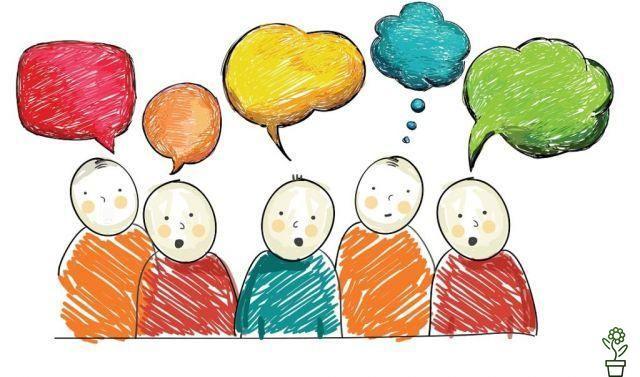
“Thinking is difficult, that's why people prefer to judge,” wrote Carl Gustav Jung. In the era of opinion, where everything is judged and criticized, often without solid foundations, a preliminary analysis and a profound knowledge of the situation, Jung's words take on greater importance, becoming almost prophetic.
Judging impoverishes us
Identifying the act of thinking with that of judging can lead us into a dystopian world more typical of the scenarios imagined by George Orwell than of reality. When judgments replace thought, every clue becomes proof, subjective interpretation becomes an objective explanation, and mere conjecture becomes evidence.
As we move away from reality to enter subjectivity, we run the risk of confusing our opinions with facts, becoming indisputable - and rather partial - judges of others. This attitude impoverishes what we judge and ourselves.
When we are too focused on ourselves, when we cannot calm the ego that takes on enormous proportions, or we are simply in too much of a hurry to stop and think, then we prefer to judge. We apply dual labels to categorize things, events and people on a spectrum limited to "good" or "bad" using our desires and expectations as a yardstick.
Acting as judges not only distances us from reality, but also prevents us from knowing it - and enjoying it - in its richness and complexity, transforming us into unpleasant people. Whenever we judge something, we simplify it and reduce it to its minimum expression, we close the door to knowledge. We become mere animalis iudicantis.
Thinking is an enriching act
In the liquid society we live in it is much easier to judge, criticize quickly and move on to the next judgment. What does not fit into our belief system we find useless or stupid and we move on. In the age of instant gratification, thinking requires an effort that many are unwilling to make.
The problem is that judgments are only interpretations we give to events, things or people. Each judgment is a label that we use to attribute a value - deeply distorted - because it is a subjective act based on our prejudices, beliefs and paradigms. We judge based on our personal experiences, which means that many criticisms are more emotional than rational, the expression of a desire or a disappointment.
Thinking, on the contrary, requires reflection and analysis. In addition to a dose of empathy with what has been thought. It is necessary to separate emotionalism from facts, to shed light on subjectivity by taking the necessary psychological distance.
For Plato, the wise man is one who is able to observe both the phenomenon and its essence. The wise person is the one who not only analyzes contingent circumstances, which are usually changeable, but is able to go beyond the veil of superficiality to reach the universal and the essential.
Therefore, the act of thinking has enormous enriching potential. Through thinking we try to get to the essence of phenomena and things. We go beyond the perceived, we overcome the first impression to immerse ourselves in the causes, effects and deeper relationships. This requires arduous intellectual activity through which we grow as people and broaden our worldview.
Thinking means stopping. Remain silent. Pay attention. Control the impulse to judge hastily. Weigh all the possibilities. Deepen things, with rationality and empathy.
The secret lies in "being curious, not critical," as Walt Whitman said.
- 269


























